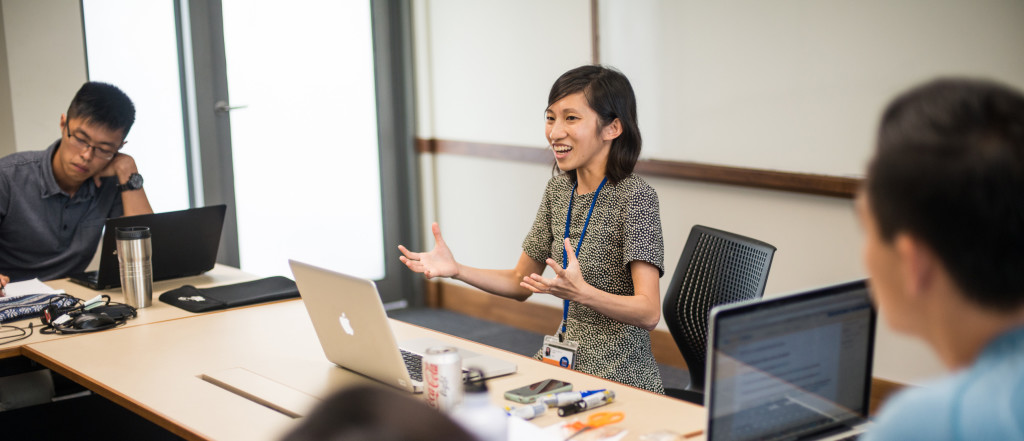For Dr Jean Liu, love is an open door

In The Effect by Lucy Prebble, a doctor sought to discover whether two people could be made to fall in love using a love drug. This was precisely what Assistant Professor of Social Sciences (Psychology) Jean Liu did in her PhD research.
“My research was focused on giving oxytocin to people and see if they may find strangers more attractive and create the possibility of falling in love. Unfortunately, what we found was that the effect was very subtle,” Dr Liu shared. Widely referred to as the love hormone, oxytocin is a hormone and was made into a drug in recent years.
“The promise of a love drug is much smaller than what you would have hoped for,” she surmised.
Since then, her research has focused primarily on either love or food.
“Both are natural rewards and things that make people happy,” she explained. “Furthermore, there are many things in common between the two on a neurobiological level.
Dr Liu is especially interested in the modern environmental influence on both love and food. In particular, some of her recent studies have focused on how social media use influences both of these types of behaviour in people.
At Yale-NUS College, Dr Liu runs the Social Neuro-Endocrinology Research Group, also known as the Synergy Lab. Working with a number of students, she regularly conducts research on social neuroscience and its implications for models of health.
One such study was on ‘phubbing’, or phone snubbing. A phenomenon referring to how people now rather text than engage in social interactions with people around them, Dr Liu was interested in examining the effects of ‘phubbing’ from a psychological perspective.
“It is interesting to consider how the modern technological environment influences us on a neurobiological level,” she shared. Dr Liu is currently writing a paper based on her findings on this study on how texting in the presence of another person produces the same neurobiological response in the other person as if they were deliberately being ostracised.
The Lab has offered many research opportunities to Yale-NUS students interested in psychology. One such student is Celine Khoo (Class of 2019), who will be running her own research experiments from conceptualisation to implementation in the Lab under Dr Liu’s guidance.
For Dr Liu, joining Yale-NUS was a clear choice, given that her other major research interest is the role of psychology in public policy. In fact, she has been an active role model for the liberal arts herself, having sat in as a student in a philosophy class on love and friendship taught by fellow faculty member, Assistant Professor of Humanities (Philosophy) Matthew Walker.
This semester, Dr Liu is teaching a class on psychology and public policy and is also working on a major survey project with several Psychology majors on the issue of organ donation in Singapore.
“The study aims to look at how the [organ donation] policy is made, given that Singapore’s system is the only opt-out system in Asia. We want to study how to boost rates of organ donation while still making people feel comfortable and willing,” she explained.
True to the spirit of the liberal arts, this interdisciplinary project is a collaborative one with several medical researchers, including her husband, an anesthetist.
To Dr Liu, love is not simply an academic interest; it has also played a significant role in her professional life. She made the decision to remain in Australia to complete her PhD research in part because her husband was completing medical studies there at that time.
Her own relationship also helped to shape some of the research she has embarked on. “A lot of time, the research I decide to conduct is based on some phenomenon that I observe in my own marriage or other people’s relationships,” she shared.
Due to her research, Dr Liu has helped to consult for dating companies such as Paktor and was also invited to speak on radio talk shows on how the psychology of love can help offer evidence-based techniques to improve the chances for singletons looking for love.
When asked what advice she has for students and those hoping to find a soul mate, Dr Liu quipped that the most robust studies in the psychology of love have shown that one is more likely to find love when one’s heart rate is racing.
“So make sure to head to the gyms and rollercoasters if you are looking for a partner,” she laughed.
“From my research, here is some motherly advice: get more sleep. Our research found that sleep makes you more attractive and when someone does not get enough sleep, they become physically less attractive.”





